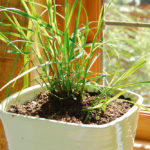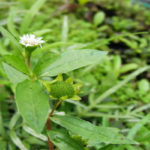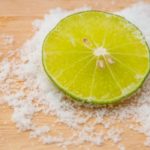Spices not only enhance the distinct flavors of each dish, but they are also a “medicine chest” that strengthens the human immune system. Here are some common spices that have high medicinal value and every family should grow one plant indoors.
1. Onion – a powerful antibacterial spice
According to health experts, onion leaves, also known as onion flowers, are called onion, thông bạch, đại thông… in traditional medicine. Onions have a spicy taste, neutral but not toxic, used as a medicine to induce sweating, diuresis, disinfection, and making water to treat fever, malaria, flu, headache, swollen face.
Onions have natural antibiotic effects due to malic acid, phytin, and alylsunfit, and also have essential oils (mainly allicin, which has a very strong antibacterial effect).
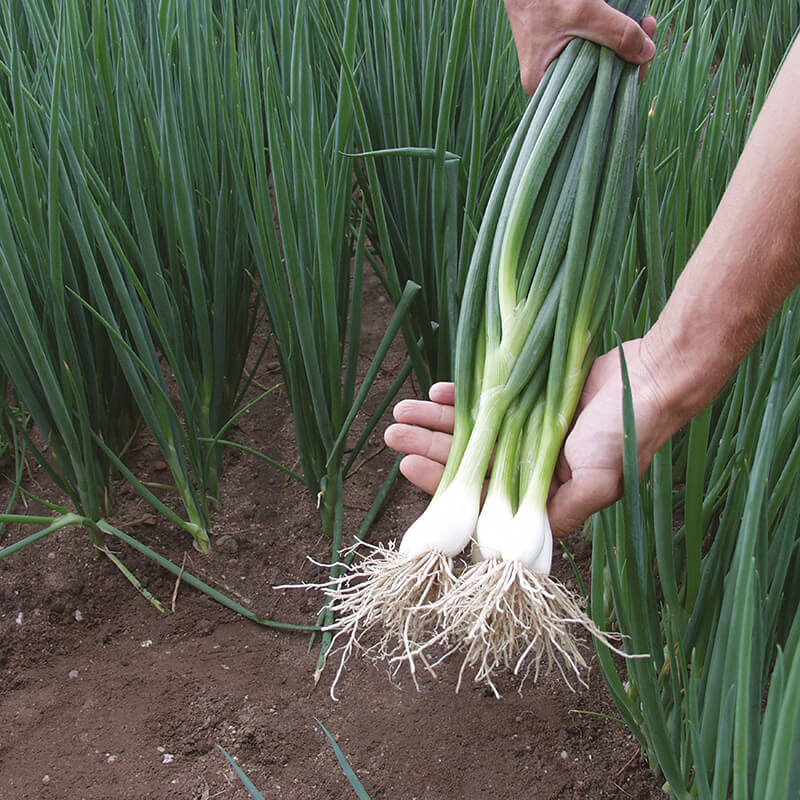
– Use onion to treat fever, headache, nasal congestion: 30g onion, 15g Hemerocallis aurantiaca, 10g Asarum, 10g sweet basil, 300ml water, boil, strain out the residue, drink while hot, wrap yourself tightly after drinking to induce sweating. Alternatively, you can add onion to hot porridge to eat for a quick recovery.
– Treat fever in children: 60g onion, 10g Asarum. Grind them and add a cup of boiling water, use the steam to inhale into the mouth and nose, do it several times a day, no need to drink.
2. Basil – fever reduction, anti-inflammatory
Basil, also known as kinh giới tuệ, giả tô, khương giới, contains many essential oils, antioxidants that inhibit some viruses and have anti-inflammatory effects. Basil leaves have a pleasant fragrance and a strong spicy taste.
Scientists have noted that basil has antipyretic, anti-inflammatory, analgesic, and calming effects when used in appropriate amounts.
According to traditional medicine, basil has a spicy taste and warm nature. It is used to treat exogenous fever (cold relief), induce sweating, warm the stomach, and digestive system. The daily dose is 6-12g in the form of decoction or powder.
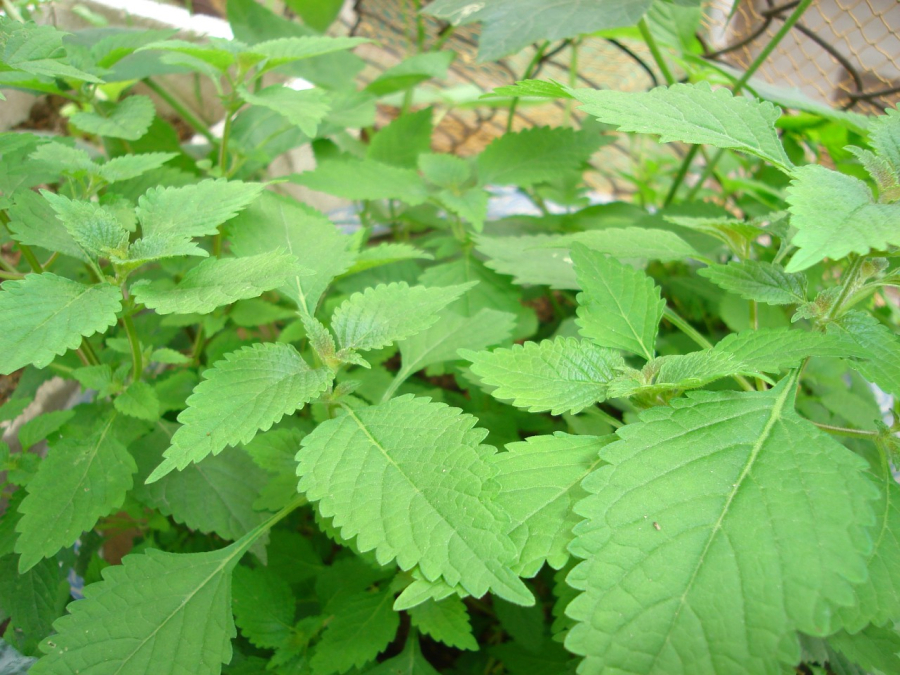
Some common remedies using basil:
– Treat summer flu, sunstroke, headache, fever: Use 3-10g of basil decoction to drink.
– Remedy for flu: Basil flowers, purple perilla leaves, dill, mugwort, agastache, benzoin, equal amounts, extract several times, condense into pills the size of corn kernels. Take about 7-8 pills when having flu.
– Treat cold and flu: Grind dried basil leaves into powder. Take 6-8g when having a cold.
– Heat relief, prevention of summer flu: Use basil leaf water, glutinous rice, mung bean to cook porridge. Eat 2-3 times a day.
3. Perilla – protects the stomach
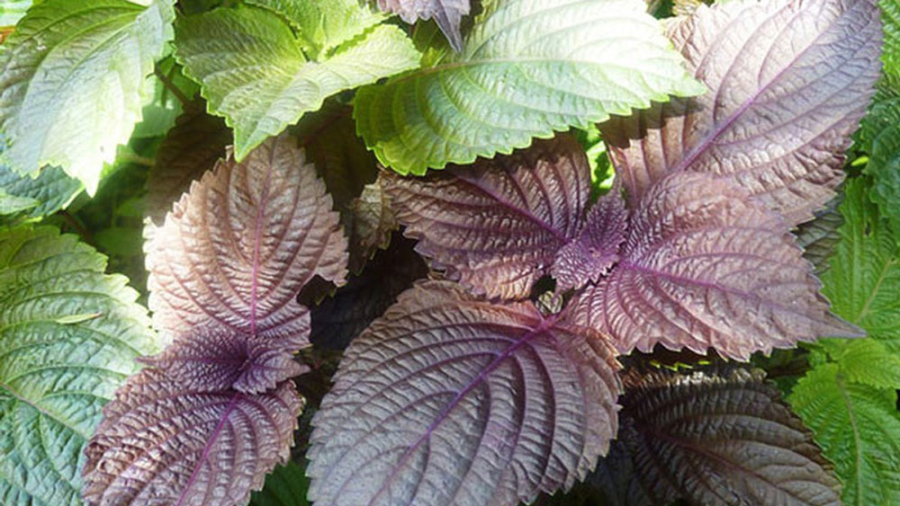
Perilla contains essential oils, flavonoids, organic acids that are beneficial to health. Perilla has a spicy taste and a warm nature. It has the effect of dispersing cold, relieving congestion, resolving phlegm, and relaxing the fetus. Used to treat exogenous wind-cold, vomiting, miscarriage.
– Treat cough, flu, protect the digestive system, reduce pain, detoxify. Dose: 5-10g perilla in the form of decoction. Or add perilla to hot porridge, eat to relieve cold symptoms.
– Reduce functional disorders of the stomach, relieve pain, prevent miscarriage. Use a branch of perilla with a dose of 5-10g to regulate air circulation.
– Perilla fruit: Reduce shortness of breath and cough, expectoration, and relax the intestines. Treatment: cough and shortness of breath due to stagnation of sputum, constipation. Dose: 3-10g.
– Treat flu, fever, headache, and joint pain: perilla leaves, ginseng, dried orange peel, black angelica, angelica sinensis, peony bark, patchouli, patrinia, grassleaf sweetflag, pokeweed, 2g each, 600ml water. Boil until 200ml remains, divide and drink 3 times a day.
However, it is especially noted that people with excess heat (sweating) or excessive sweating should not use perilla.
16 Best Houseplants to Keep Mosquitoes Away
Having to deal with pesky insects such as flies and mosquitoes is something that most of us have probably experienced. Not only do these troublesome critters cause unsanitary spaces, they can also spread infectious diseases. While insecticides do the job, why not try something a little different and opt for plants to repel these insects while adding to the aesthetics of your home? Read on to learn more about the following plants that could help.
























